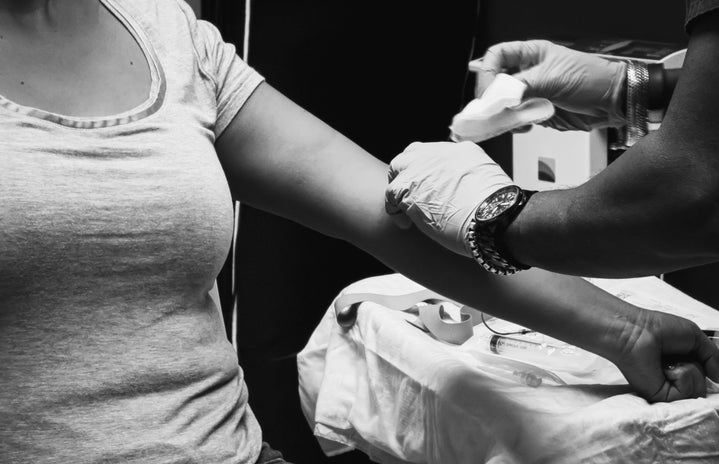Blood donation is the act of donating a small amount of your blood to save the lives of people who undergo medical treatments and interventions, such as transfusions, transplants, oncological procedures, and surgeries or situations of emergencies and calamities.
In addition, blood is also indispensable for patients that deal with serious chronic diseases – such as Sickle Cell Disease and Thalassemia – so they can live longer and with better quality. The goal is to keep blood stocks always full and not just on specific dates or when someone you know needs it.
The requirements for donating blood vary from country to country. In Brazil, for example, some of the rules include being between 16 and 69 years old and weighing more than 50kg, not having had a tattoo and/or piercing for at least 12 months. It is worth mentioning to check government portals in your own country to find out what are the requirements to become a blood donor. With that in mind, Her Campus has put together six reasons why you should donate blood.
1. A single donation can save up to four lives
In addition to being a simple, quick, and safe attitude, a single donation can help up to four people. When someone needs a blood transfusion, they can only count on the solidarity of other people.
2. There is no substitute for blood
Although science has advanced a lot, there is still no medicine or way to replace blood other than donation. Some synthetic products can even delay a transfusion, but this is a palliative and temporary method.
3. Your body quickly replaces donated blood
An adult has an average of five liters of blood in their body and a maximum of 450 ml is collected in a donation, less than 10% of all the blood in their body. This volume is replaced in 24 hours by the body.
4. The donation is fast!
Donating blood is very simple and easy, the whole process takes around half an hour. The steps are donor registration, anemia test, blood pressure and temperature check, weight, and health questionnaire, self-exclusion vote, donation, and post-donation snack.
5. Helping other people is good for you too
Donating blood is a voluntary and altruistic action. Both who receive and who donate blood are benefited since it positively affects the donor.
6. Free check-up
Before donation, the person undergoes a series of tests for quality control. These exams allow the donor to have a perspective of their health without having to pay. The exams include Syphilis, Hepatitis B and C, Chagas Disease, AIDS, and others.
Now that you understand the importance of this act of solidarity, be part of this movement. Donate blood, save people.
——————————————————————
The article above was edited by Laura Enchioglo.
Liked this type of content? Check Her Campus Casper Libero’s home page for more!



